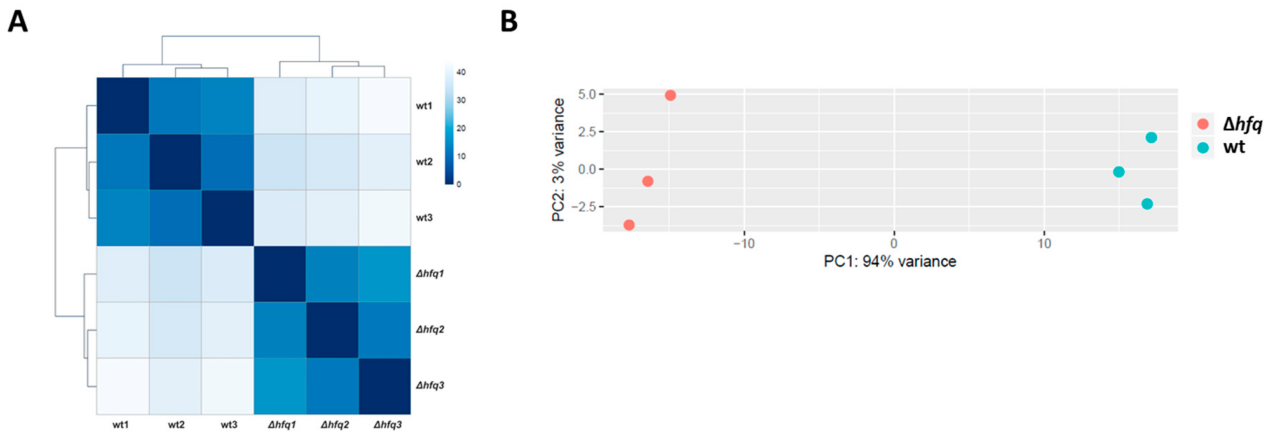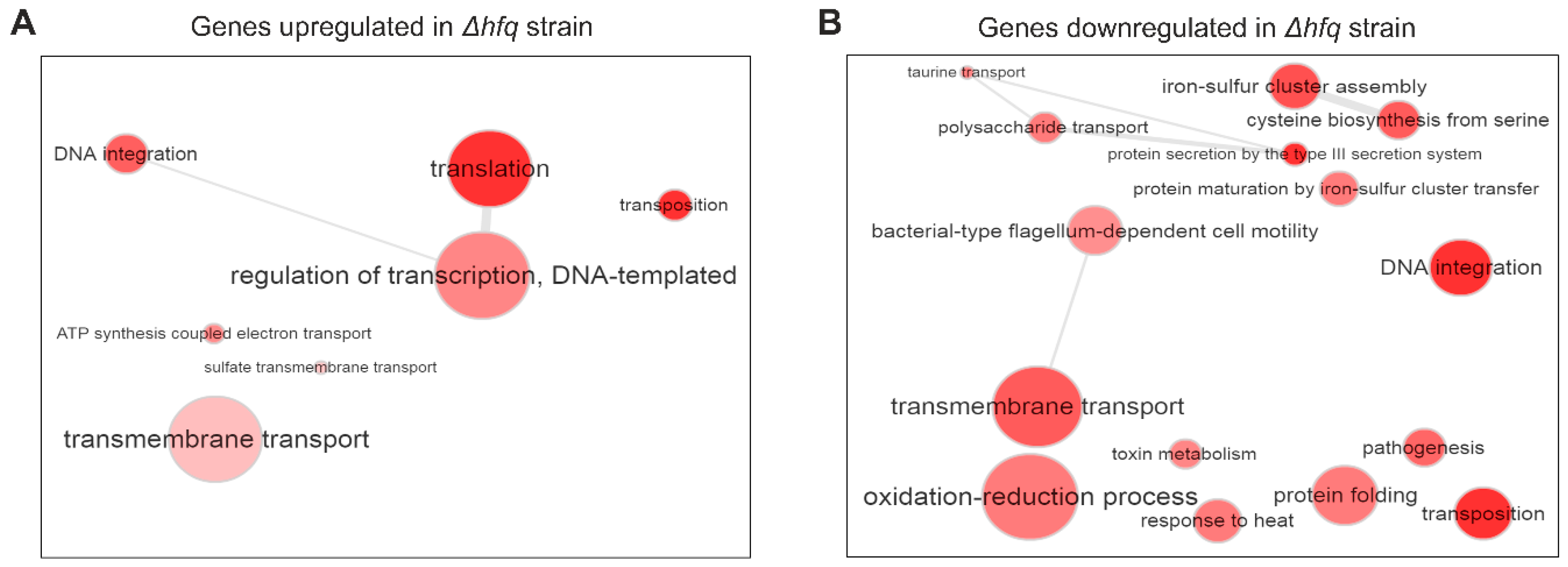Hfq is a conserved RNA-binding protein with multiple regulatory roles within the prokaryotic cell. One of the key roles is to promote stable duplex formation between small RNAs and mRNAs and thus Hfq deletion mutants have pleiotropic phenotypes. This study represents the first attempt to characterize Hfq regulon in bacterial pathogens using an integrative omics approach by comparing RNA Seq and microarray technique.

Source: https://doi.org/10.1073/pnas.1004435107
Hfq protein in action. The figure shows the binding mechanism by forming duplex formation.
This recent study by Dienstbier et al (1) performs a comparison across next-generation sequencing using RNA-seq analysis and DNA microarray to establish regulatory action for Hfq protein in B. pertussis.
Total RNA isolated from biological triplicates of B. pertussis Tohama I strain and its isogenic hfq strain cultures were analyzed by RNA-seq. Differential gene expression analysis showed significant modulation of B. pertussis genes including non-coding RNAs. A parallel DNA microarray analysis was performed and results were compared to determine sensitivity between the two approaches. Compared to microarray profiling, RNA seq analysis showed significant sensitivity in retrieving novel genes. RNA Seq analysis pipeline was used for clustering and principle component analysis.

Heatmap showing clustering of deferentially expressed genes. Differential gene expression analysis identified 653 significantly modulated B. pertussis genes including 40 non-coding RNAs and 11 transfer RNA genes.
Gene Ontology (GO) analysis provided insights into the functional profiles of Hfq-dependent genes. As displayed in the figure below, genes related to Translation, Regulation of transcription, and Transmembrane transport terms were upregulated while genes belonging to Transmembrane transport, Iron–sulfur cluster assembly, Oxido-reduction process, Pathogenesis, and Protein secretion by the type III secretion system terms were enriched among the transcripts which were significantly down-regulated in the hfq mutant.

Gene Ontology (GO) analysis for functional profiling
The above study highlights the advantages of next-generation sequencing- Transcriptome sequencing or RNA seq and bioinformatics RNA Seq analysis pipelines to establish differential gene expression profiles.
If you are interested in getting your transcriptome data analyzed or need help with transcriptome projects, contact us for a no-obligation consultation at sales@1010genome.com or fill up the form below to provide us with some details and one of our experts will contact you.
(1) Comparative Integrated Omics Analysis of the Hfq Regulon in Bordetella pertussis. Int J Mol Sci. 2019 Jun 24;20(12). pii: E3073. doi: 10.3390/ijms20123073.

